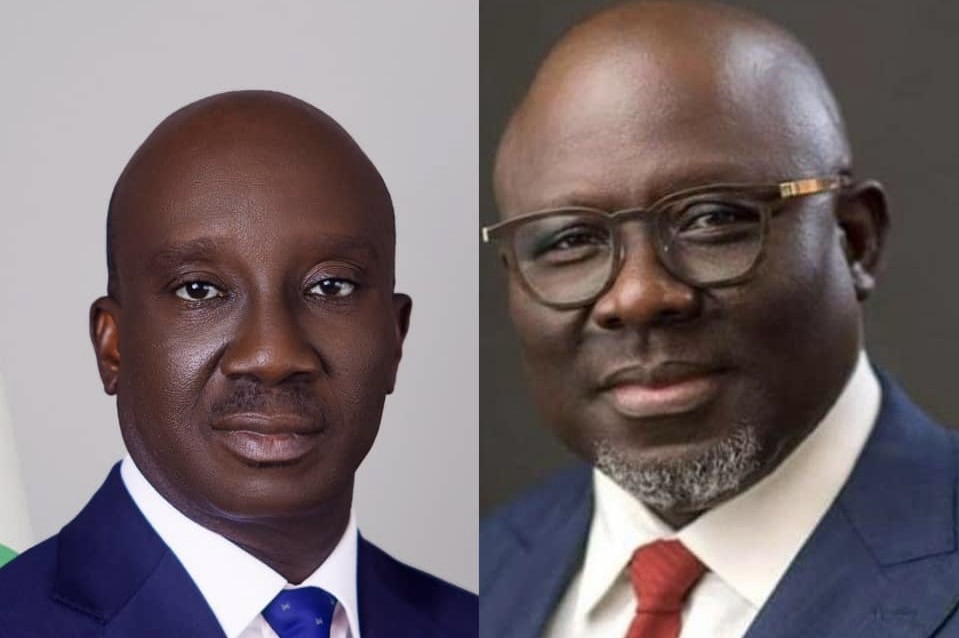…puts expected $55bn investment at risk
Industry watchers say ongoing hiccups, bad blood and name calling in Nigeria’s oil industry reflect resistance to new market dynamics which have introduced fresh roles and players and tend to question lack of transparency and efficiency in the system.
The stakeholders further say that the face-off between the leadership of the Nigerian Midstream and Downstream Petroleum Regulatory Authority (NMDPRA) and the Dangote Refinery must be quickly curtailed as it can mar the country’s prospects of attracting the anticipated $55.2 billion in investments between now and 2030, as announced by Ms. Olu Verheijen, Special Adviser on Energy to the President Tinubu.
The NMDPRA and Dangote Refinery have been embroiled in an unsavoury back and forth in the past weeks, with the latter claiming there is an ongoing conspiracy to undermine its operations by preventing it from getting the crude feedstock for its refining operations.
The NMDPRA, for its part, refuted the claims.
Farouk Ahmed, chief executive officer of the NMDPRA, alleged the Dangote Refinery was producing inferior products compared to imports.
Ahmed also said the Dangote Refinery had not been issued an operational licence by the authority and that as such, it was operating illegally. The refinery was also described as operating a monopoly.
Meanwhile, industry stakeholders have been weighing in on the face-off between both agencies. Akinwumi Adesina, President of the African Development Bank (AfDB), said the development was creating bad waves for Nigeria globally.
Adesina further observed that having imported its fuels for decades, the situation had become almost normal for Nigeria, adding that the mentality that Nigeria should simply import what it needs will not help the economy.
“In a nation that has been importing refined petroleum products for several decades, the abnormal simply became very normal. No smart investor would make a $19.5 billion investment and want it to be undermined by importers,” he said.
He charged that those who accuse Dangote of having monopolistic tendencies should show evidence, stressing that there exist natural entry and exit encumbrances in certain businesses, including the huge initial capital outlay needed for such ventures.
Adesina argued that Nigeria cannot afford to belittle the huge investment in the Dangote refinery, urging the authorities to protect the oil asset for the benefit of Nigerians.
For his part, former governor of Kano State, Rabiu Kwankwaso, on Wednesday charged the Nigerian government not to allow the Dangote refinery to fail.
Kwankwaso said creating unnecessary fuss around the integrity of the Dangote Refinery by some government officials was unfortunate.
He added that the Nigerian government must exhibit fairness towards such a monumental project.
Posting on X, Kwankwaso wrote: “I was privileged to visit the magnificent Dangote Refinery, and I was marvelled by the sheer commitment that went into the quality of its establishment.
“This 650,000 bpd refinery is essential for our energy needs and economic stability, and it must be protected from all forms of threat.”
The presidential candidate of Labour Party in the 2023 election, Peter Obi, has likewise expressed concern over the feud between the Dangote Group and federal regulators over the Dangote Refinery.
Obi, in a series of tweets on his X handle, urged the Nigerian National Petroleum Company Limited and other government agencies to tread with caution in handling whatever dispute they had with Dangote because of the far-reaching implications of their actions on the economy.
“The recent conflicts between Dangote Industries and some government agencies are deeply troubling,” Obi said.
“This issue transcends political affiliations and personal grievances. It is fundamentally about Nigeria’s economy, future, and the well-being of its citizens. Given Alhaji Dangote’s significant contributions to Nigeria, these disputes must be resolved swiftly.
“The refinery has the potential to generate approximately $21 billion in annual revenue and create over 100,000 jobs, with numerous additional positive impacts on the economy,” he said.
Billionaire businessman Femi Otedola also weighed, saying in a post on his X handle that the President of the Dangote Group, Aliko Dangote, is the largest private sector employer of labour in the country, and his companies are among the largest taxpayers.
“In fact, the Dangote Group often pays more in taxes than the top banks combined. If not for him, we would still be importing cement. His contributions extend beyond industrial facilities to critical infrastructure, having built major roads such as the Apapa Oshodi-Owonrosoki Express Road, Wharf Road, and the Obajana-Kabba Road,” he wrote.


